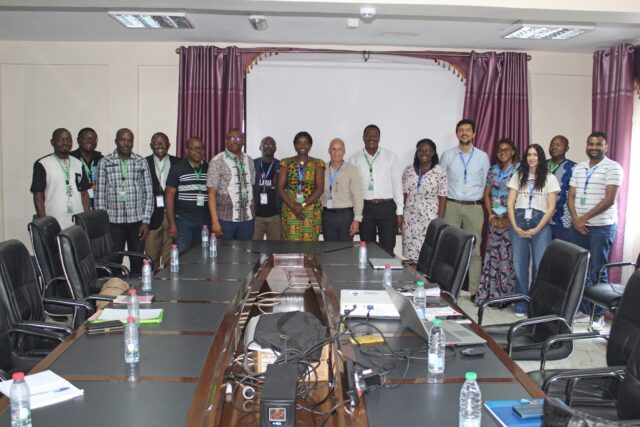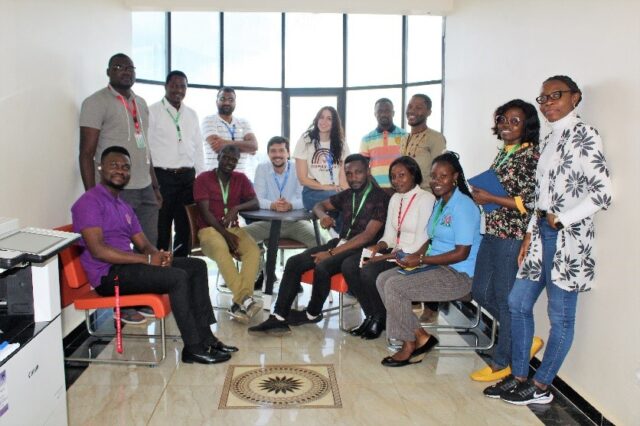
The 3rd annual bCUBE project meeting was held at CRID from 12 to 23 June and brought together collaborators from the Johns Hopkins University (JHU) and Hyris in the United States including Prof George Dimopoulos, Drs Mary Kefi, and Madhavinadha Prasad Kona from JHU, Andrea Nardi from Hyris, Prof Charles Wondji, Dr. Tedjou Armel, William Tchapga and others from Centre for Research in Infectious Diseases (CRID). The aim of this meeting was to provide evidence of the efficiency of bCUBE, a portable molecular diagnostic device, in detecting Insecticide Resistance (IR) markers on malaria vectors on the field. Prof. George Dimopoulos presented an overview of the project and its objectives. The project’s partners discussed the year 3 milestones, which include: development of field-compatible sample preparation methods; design of bCUBE-compatible insecticide resistance diagnostic assays; improvement of field-compatible bCUBE experiments; adaptation and deployment of the bCUBE-compatible insecticide resistance diagnostic system in malaria-endemic areas. In addition, a number of activities (field experience, training, meetings) were carried out during this period.
 A training session was held at CRID with about ten Ph.D students and technicians. The session monitored by a highly skilled team provided an overview of the principles of the bCUBE machine. During the laboratory practical session, participants used TaqMan probe assays to test the efficiency of the bCUBE in detecting resistance markers. The session demonstrated the potential application of bCUBE in the field to improve disease management strategies.
A training session was held at CRID with about ten Ph.D students and technicians. The session monitored by a highly skilled team provided an overview of the principles of the bCUBE machine. During the laboratory practical session, participants used TaqMan probe assays to test the efficiency of the bCUBE in detecting resistance markers. The session demonstrated the potential application of bCUBE in the field to improve disease management strategies.
The bCUBE team went on a field trip to Elende, a small town located in the Centre Region of Cameroon, about 31 miles (50 kilometres) South-East of the capital city Yaoundé. The team collected mosquitoes and set up a mobile laboratory to perform Deoxyribonucleic Acid (DNA) extraction and genotyping of insecticide resistance markers using the bCUBE machine. The field trip was a valuable experience for all involved, providing an opportunity to engage in hands-on research and gain practical skills in the application of bCUBE technology in the field.
The same team collected in Mbalmayo, Cameroon, mosquito larvae from various breeding sites and conduct DNA extraction and genotyping for insecticide resistance markers using the bCUBE machine. The Government Nursery and Primary Practising School of Oyack served as their field station during this trip.
At the end, the bCUBE team held a meeting with various stakeholders, including the National Malaria Control Programme (NMPC), the Pan-African Mosquito Control Association (PAMCA), and representatives from Centre Pasteur and Laboratoire National de Santé Publique, to showcase the effectiveness of bCUBE in addressing health challenges. During the meeting, they presented evidence of bCUBE’s ability to discriminate the genotypes of malaria vectors insecticide resistance markers in the field and certify the efficacy of dry cartridges production at CRID and Field-deployable Insecticide Resistance Surveillance System. The stakeholders unanimously agreed that bCUBE is a crucial tool for vector control in Cameroon and broadly in Africa.






